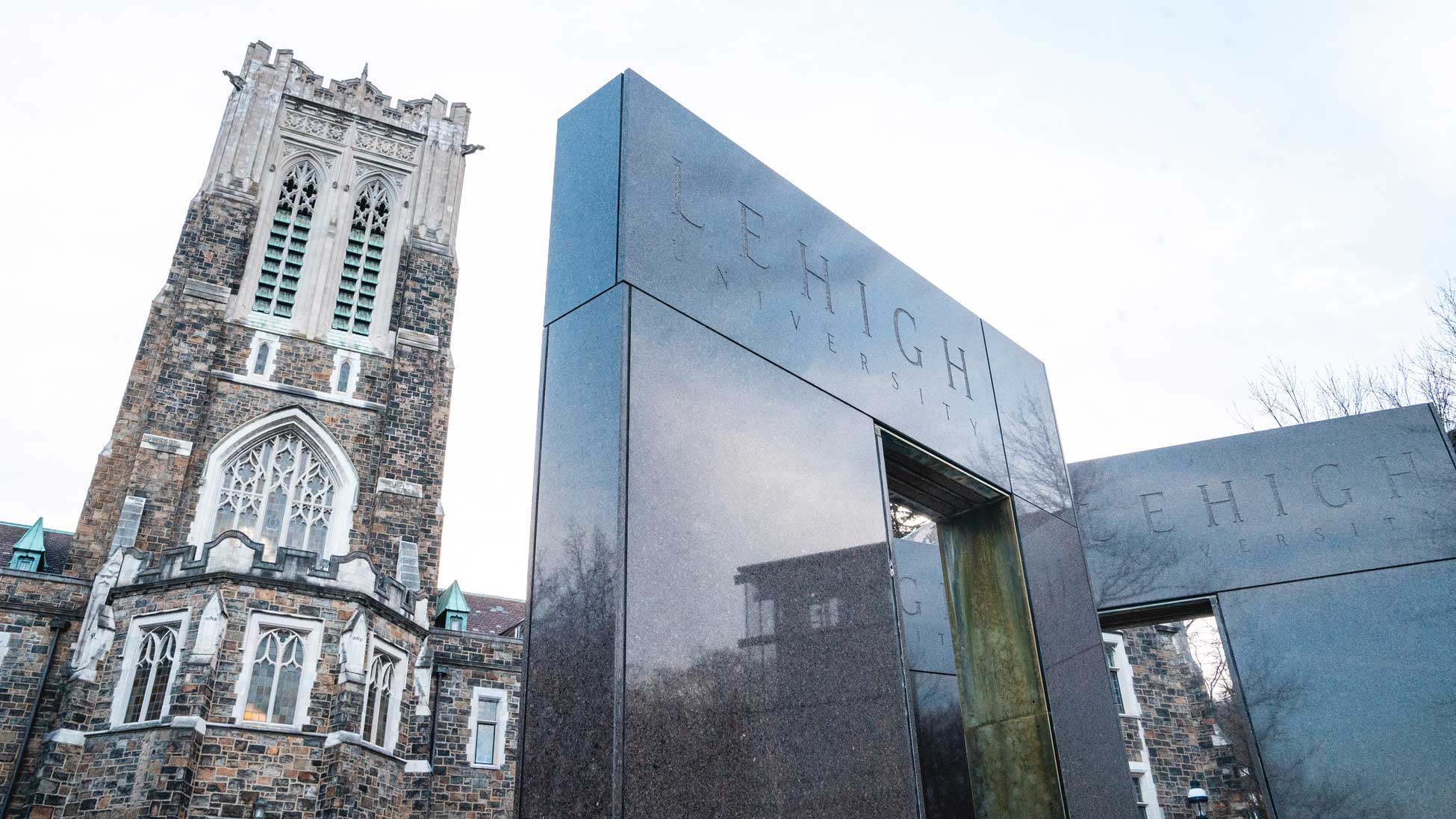Howard Polsky ’73 grew up in Burlington, New Jersey, where the streets in his small neighborhood were named after prominent universities: Cornell, Princeton, Fordham, and Rutgers. Because he resided on Lehigh Avenue, you might say that attending Lehigh was inevitable, but that was far from the case.
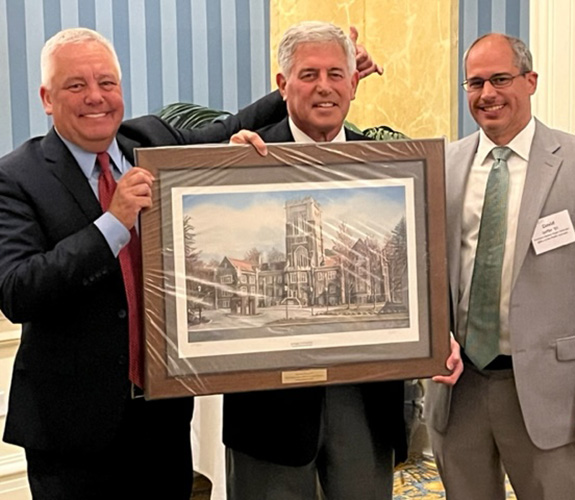
He graduated third in his class, played clarinet in the concert band, and was the county’s top-ranked varsity tennis player.
His father owned and operated a men’s clothing store in town. Polsky remembers his father asking whether he wanted to follow in his footsteps in that business or preferred to blaze a new path as the first in the family to attend college.
Naturally, Polsky was voted “Best Dressed” in his high school yearbook, but college still felt like the right path. So his counselor made a list of Pennsylvania schools that might be a good fit. Polsky added Lehigh to that list — in part because of his neighborhood and in part because of his uncle who studied engineering at Lehigh.
The tours began, but one visit was all it took for him to know he belonged on South Mountain.
Lehigh Days
His first days on campus didn’t begin with orientation. Instead, it was an initiation into the Marching 97 over a three-day camp excursion where he learned the music and formations, practiced drills, and was given the lifelong lesson by Jonathan Elkus, professor of music, that excellence depends on hard work and dedication.
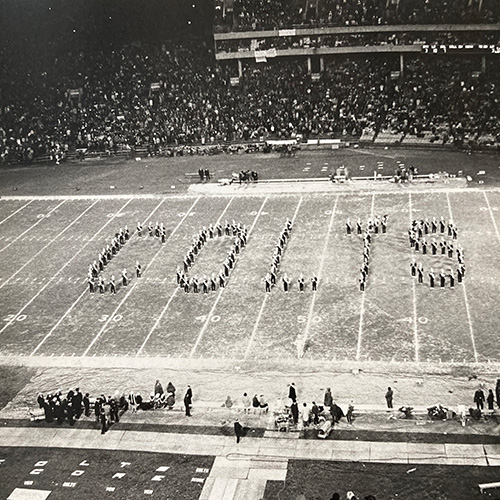
Polsky recalls many days of band practice in cold and rainy November afternoons to perfect different halftime shows prior to each Saturday for both the home and away games. Showing up the Cadets at Army was especially satisfying, as were two nationally televised NFL halftime shows for the Baltimore Colts and New York Jets. Due to its precision marching style and reputation, the Marching 97 was invited to perform on those stages, unprecedented for a school of Lehigh’s size.
As a first-year student, he lived in Dravo, wore the required coat and tie to dinner in the University Center, and took mandatory courses in literature, mathematics, foreign language, Western civilization, and physical education (which included must-wear Lehigh sports gear).
But life at Lehigh over four years was wide ranging as he joined Sigma Nu, welcomed the first class of women, relished the Rivalry, and competed in intramural sports. He always cheered on Lehigh wrestling in the Snake Pit, especially when the team battled its Penn State rival.
He served as president of his fraternity and was elected by the student body to the Forum, a university governing authority formed in 1970 in the wake of the Vietnam War protests.
He majored in government and concentrated on what today would be considered a minor in economics. He took a wide variety of other courses in areas such as psychology, astronomy, ancient history, and fine arts. He formed strong bonds with faculty including Howard Whitcomb MA’63, professor of government, and Nicholas Balabkins, professor of economics. His fraternity brothers constantly razzed him for heading to Linderman Library to study every night but Saturday. In his senior year, he was inducted into Phi Beta Kappa and Omicron Delta Kappa.
“Graduates of other universities I have met in my career don’t have the same kind of feelings for their alma maters as I do for my alma mater,” he says. “I loved my time at Lehigh and the quality of the education and opportunities for personal growth. I learned how to learn, communicate, write with clarity, and interact with students from a wide variety of backgrounds. In short, Lehigh prepared me well to step into the real world.”
A Life in Law
The real world began at Indiana University, where he earned his law degree.
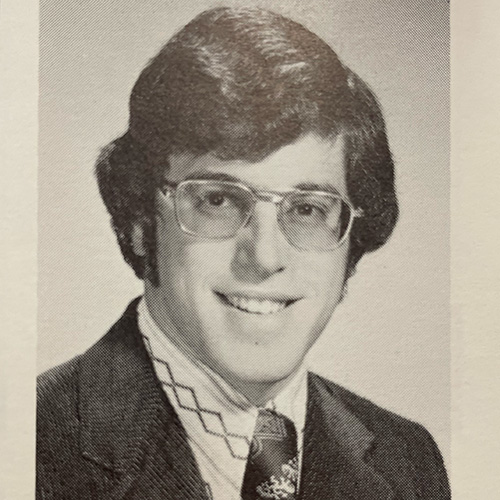
His path in law became much more clear after he worked alongside a public defender in a second-year clinic. After an intense interview in the county jail with a client accused of murder and rape, Polsky quickly ditched his initial interest in criminal law.
During his third year, he spent a semester in Washington, D.C., as part of a program primarily focused on federal administrative law and with courses taught by high-ranking government officials working in various agencies and on Capitol Hill.
He fell in love with communications law and soon launched his career at the FCC. Later he was an associate in the D.C. office of Kirkland & Ellis and then a partner at Wiley, Rein and Fielding, specializing in telecommunications regulation and appellate practice.
He next took a calculated risk and stepped out of law and into government relations at COMSAT Corporation, a global satellite company created by an act of Congress. When COMSAT was acquired by Lockheed Martin Corporation, Polsky served as general counsel of its Global Telecommunications business unit.
Finally, he spent 15 years as general counsel of K12 Inc. (now Stride, Inc), America’s largest provider of online education for K-12 students — a company he helped take public in 2007 when he rang the bell at the New York Stock Exchange. The Lehigh Lawyers Association honored him as a distinguished alumnus in the field.
Getting Involved and Invested
While he was consumed with his own life, Polsky still held fond memories of Lehigh and found small ways to give back. But then a meeting in 2012 with Jen Nelson ’90 MBA’92, associate vice president in Development and Alumni Relations, sparked the beginning of over a decade of deeper involvement and philanthropy.
Polsky first became a member of the Dean’s Advisory Council (DAC) for the College of Arts and Sciences.
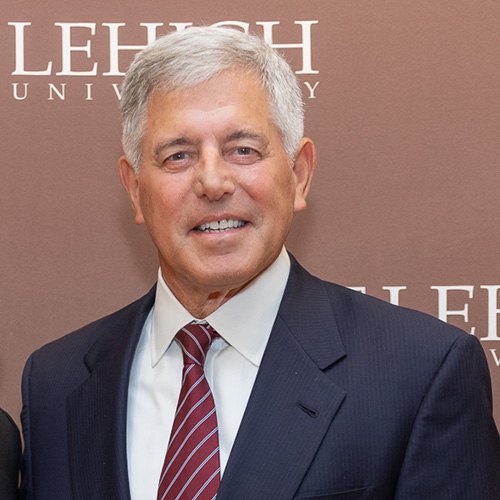
“Only when I got actively involved with the DAC was I able to fully appreciate the complexities of operating a university in today’s rapidly changing world and the imperative to address the future challenges faced by students, faculty, and the institution of higher education itself,” he says.
After two terms on that DAC, he then joined the DAC for the College of Education, where he now serves as its chair.
“Our DAC members are highly successful professionals in their fields and are able to offer an outside perspective to the dean and her associates on important issues facing the college,” he says. “We effectively act as sounding boards, and our inputs are taken seriously and often put into action.”
His involvement turned into investment.
Polsky created an endowment to advance the study of American democracy and law, which, among other things, provides awards for student essays on foundational constitutional principles that are published on the Department of Political Science website. Motivated by free speech issues, he then stepped forward to support President Joseph Helble ’82’s idea for Compelling Perspectives, a campus speaker series that promotes respectful discourse by featuring renowned public figures discussing contemporary societal issues.
Most recently, a chance encounter and discussion with a student interning at a physical therapy facility where Polsky was wearing a Lehigh T-shirt prompted him to support the volleyball team. He believes that in today’s wild world of collegiate athletics, the Lehigh model, which emphasizes both academic and athletic excellence, should be maintained and requires strong alumni giving. Walking the walk, he is a regular donor to Lehigh football, basketball, wrestling, lacrosse, and volleyball.
He also is an advocate.
At a reunion this summer in the Poconos with 40 Sigma Nu brothers, he took the floor and spoke proudly of the incredible changes underway at their alma mater and the success of Lehigh graduates as reflected in a 2024 Wall Street Journal study that ranked Lehigh 15th as measured by outcomes in its survey of 500 colleges and universities. He told them of his participation and investments in Lehigh as a leader and donor. He encouraged them to consider the same.
“Lehigh is on the move,” he says. “Its vision is always looking ahead to create the academic programs, facilities, and social and athletic experiences to equip its graduates to become respected leaders in their chosen professions.”
And, years later, to gather with lifelong friends to reminisce about the glory days on South Mountain.
